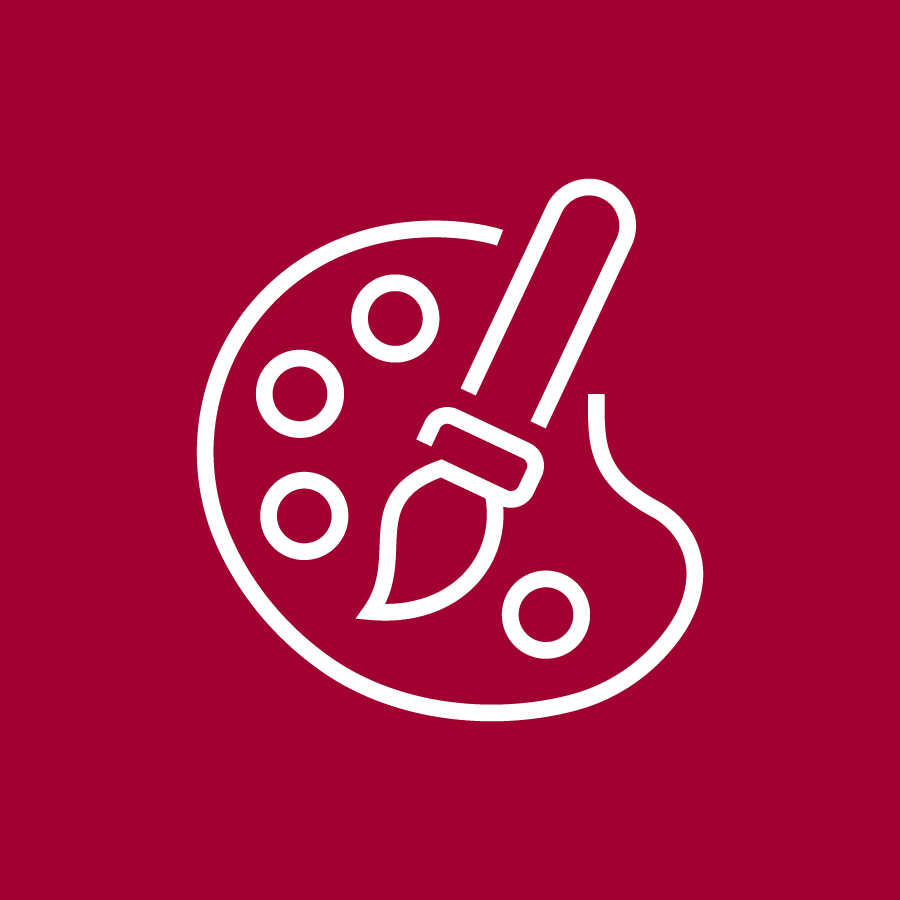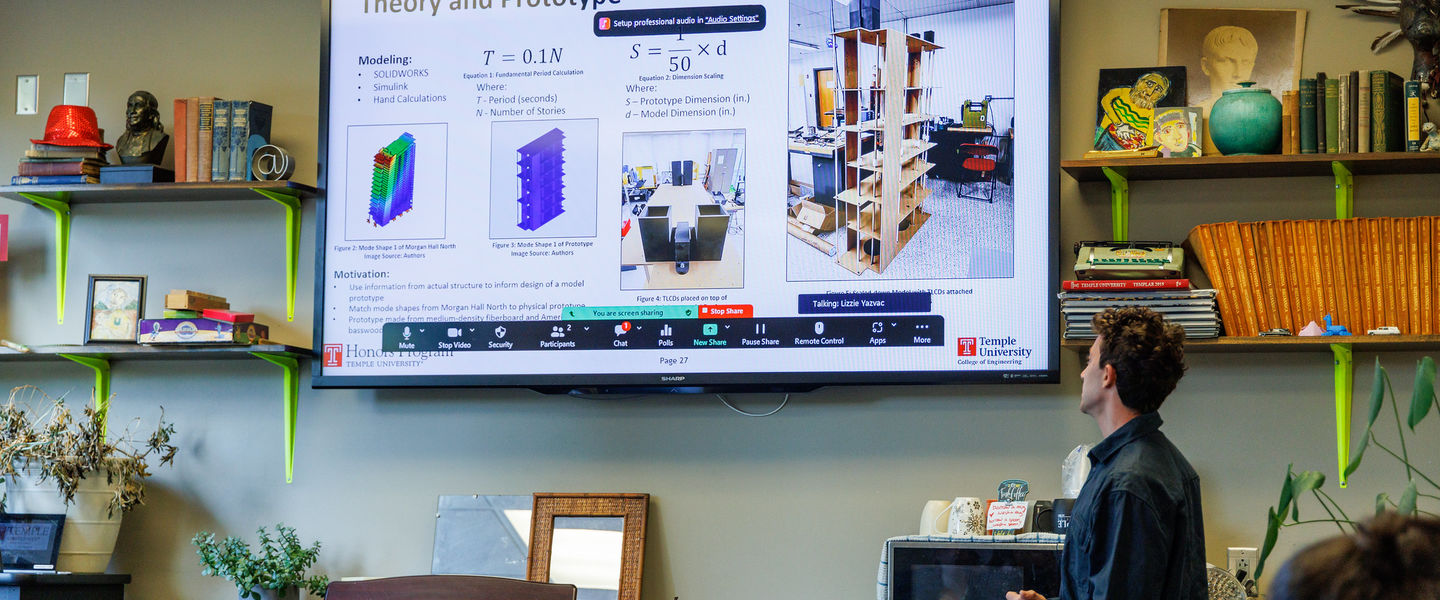TEMPLE HONORS SENIOR PROJECT
TYPES OF SENIOR PROJECTS
There are three forms that your Senior Project may take, and we encourage you to spend some time thinking about which option works best for you and your topic/area of study. All three options include a written component and a defense in front of faculty.

Thesis
One option for Honors Senior Project is to complete a traditional thesis. Students conduct independent research and write a thoughtful, well-researched paper based on their findings. This option is particularly useful for students applying to professional or graduate programs. The Thesis option may expand on prior research experiences or dive deeper into past paper topics written for class.

Creative Project
A creative project combines research and artistic production and may be the Senior Project that excites you the most! This could be a podcast, a musical production, a mural, or a collection of poems. Creative projects are accompanied by a written component that explains the work. The expected scope of the creative project varies by discipline, but it goes beyond the standard senior show or recital required of all graduating majors in the field.

Practical Application
Students produce a tangible project after completing a wide variety of hands-on experiential learning. This may include professional internships, the creation of a curriculum, a policy brief, or the establishment of an on-going (volunteer) organization. This Senior Project culminates with a written explanation that contextualizes the experience within relevant research. The scope of the project varies by field, but it should reflect a significant commitment of time and intellectual effort.
The Keys to A Successful Honors Senior Project
BENEFITS OF HONORS SENIOR PROJECT
The benefits of completing an Honors Senior Project start with getting to work on a project that you are excited about, really excited about! But they also include upper-level Honors credit. Even more important, this project will enhance your preparation for graduate school and professional studies. It is a good line on your resume and definitely something you can talk about during job interviews. Plus, all projects are included in TUScholarShare – forever. That means you can look yourself up on the Temple Library Webpage and show your friends what you have done.
REQUIRED COURSES:
- HNRS 4901: Creating Knowledge: Honors Project Design (one credit) - This is a one-credit pass/fail class that will help you to develop your thesis topic. To be taken spring semester of Junior Year. (If students are studying abroad and cannot take this class, exceptions will be made.)
-
HNRS 4999: Honors Senior Project (two credits) - This is an asynchronous course to give you the time and space to write up your research results. To be completed fall semester of Senior Year.
Together these two classes count for three credits and an upper-level Honors Credit.
TIMELINE & PROCESS
Below is a timeline of the 3-semester process with both academic and administrative goals for each semester. For most students, this process starts in spring of their junior year. For students graduating early or who are engaged in study abroad, the timeline can be amended, please contact Bryant Simon, University Honors Academic Chair, at brysimon@temple.edu.
Semester | Academic Goals |
|---|---|
First Year in Honors | Buy a notebook. Keep track of the ideas and topics that interest you. Write them down in your notebook. Ask your professors about your ideas. Ask them about their research and about doing undergraduate research. |
Second Year in Honors | Circle the ideas in your notebook that interest you the most. Start to narrow down your interests. Search for research in that area. What has been written about the topic? Keep talking to your professors. Keep sharpening your ideas. |
Spring Semester - Junior Year | Enroll in Honors 4901, and bring your ideas to class. Get to know your subject area librarian! Develop a clear thesis topic and research question. Choose an advisor. Build a bibliography, and a research plan. End the semester with a research proposal. Find a lab. Apply for research funding, including the Diamond Research Scholars Award and the Caras Award. |
Summer - Junior/Senior Year | Research. Read. Research. Read. And do more research. Begin to carefully review the literature for your project. Find out where your research sits among what is currently available about your topic. Do more research. |
Fall Semester - Senior Year | Enroll in Honors 4999. Finish a draft of your project by April 1. Identify a second reader. Schedule your project defense by May 1. |
Spring Semester - Senior Year | Present your work at the Symposium for Undergraduate Research and Creativity. Attend the Honors Celebration of Undergraduate Research. |


